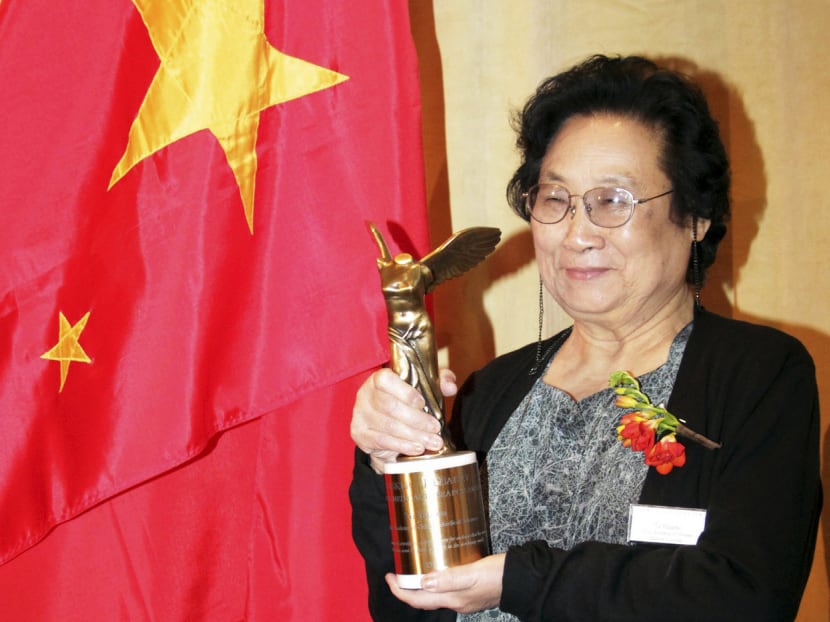Malaria remedy wins China a historic Nobel Prize
BEIJING — For decades, China has yearned for a Nobel Prize in one of the sciences, and now a little-known researcher who helped isolate an anti-malaria medicine derived from an ancient remedy has finally won China that honour.

Chinese pharmacologist Dr Tu Youyou was recognised with the Nobel Prize in Physiology or Medicine for discovering artemisinin, a drug that has helped significantly reduce the mortality rates of malaria patients. Photo: AP
BEIJING — For decades, China has yearned for a Nobel Prize in one of the sciences, and now a little-known researcher who helped isolate an anti-malaria medicine derived from an ancient remedy has finally won China that honour.
Dr Tu Youyou, 84, also became the country’s first woman to win any Nobel Prize. She was one of three scientists who used modern laboratory techniques to discover anti-parasitic drugs long hidden in herbs and soil who won the Nobel Prize in Physiology or Medicine on Monday.
She won one half of the US$960,000 (S$1.37 million) award, while Dr William Campbell, formerly of New Jersey, and Dr Satoshi Omura, of Japan, jointly won the other half for developing Avermectin, the parent of Ivermectin, a medicine that has nearly eradicated river blindness and radically reduced the incidence of filariasis, which can cause the disfiguring swelling of the lymph system in the legs and lower body known as elephantiasis.
Their drug therapies “have revolutionised the treatment of some of the most devastating parasitic diseases”, said the Nobel Committee of the Karolinska Institute in Stockholm in announcing the winners.
Nobel Prizes for Physics, Chemistry and Peace are also being announced this week.
Dr Tu never achieved much public acclaim in China for her part in the early 1970s discovery, and never was accepted into the country’s prestigious national academy of science, despite several attempts. But her breakthrough with the Nobel Prize has drawn jubilant congratulation, sent her name trending on social media and drawn praise for the country’s medical research.
Chinese Premier Li Keqiang congratulated Dr Tu for winning the award, as did Chinese Vice-Premier Liu Yandong, who is in charge of China’s education, science and research.
Dr Tu appeared on state broadcaster CCTV to say the award was a “great honour” while declining to take all of the credit for her work in discovering artemisinin and dihydroartemisinin, extracted from sweet wormwood, or Artemesia annua.
“The successful finding of artemisinin is the collective achievement of the research team, and it is a collective honour for all Chinese scientists,” Dr Tu said. “It indicates that the research science of the Chinese traditional medicine have won high attention from the internal science community.”
As a junior researcher, Dr Tu was recruited by the Chinese government to work on a military project in 1969 to find anti-malaria drugs. Dr Tu and her team-mates combed through ancient books on medicine, herbal therapies and folk remedies before they compiled 640 medical treatments.
Dr Tu and her team conducted research on more than 200 of the herbal medicines and later focused on sweet wormwood — a remedy cited originally in a Chinese text by 4th century pharmacist Ge Hong.
They found that a compound extracted from the wormwood was effective in treating malaria. AGENCIES






